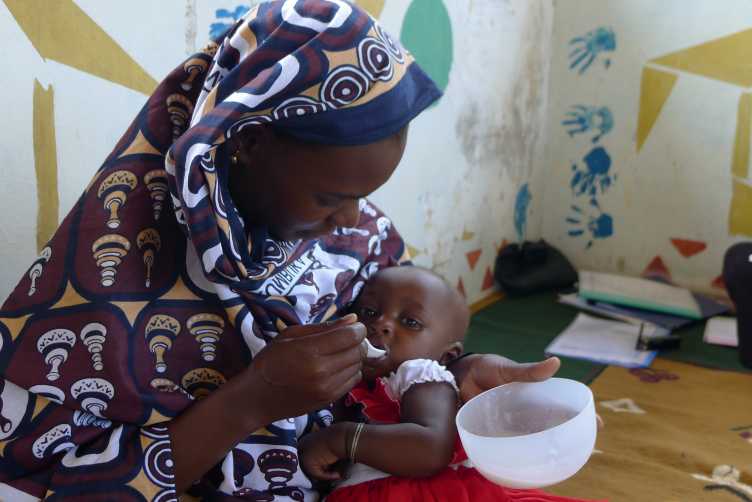E4D Fellow: Daniela Paganini
Development and testing of a new iron-containing micronutrient powder with an improved safety profile in Kenya
Project duration: 2016 - 2018
Supervisor at ETH Zurich
Professor Michael Zimmermann (Laboratory of Human Nutrition)
Collaborators
Prof. Christophe Lacroix, Dr. Clarissa Schwab,
Laboratory of Food Biotechnology, ETH Zurich
Dr. Diego Moretti, Dr. Colin Cercamondi,
Laboratory of Human Nutrition, ETH Zurich
Prof. Simon Karanja,
Jomo Kenyatta University of Agriculture and Technology, Nairobi, Kenya
Dr. Klaus Kramer,
Slight and Life, DSM Nutritional Products Ltd, Basel, Switzerland
Partner institutions
Laboratory of Food Biotechnology, ETH Zurich
external page Jomo Kenyatta University of Agriculture and Technology, Nairobi, Kenya
external page Sight and Life, DSM Nutritional Products Ltd, Basel, Switzerland
Project description

Infants and young children in developing countries have high rates of iron deficiency anemia (IDA), which adversely affects their growth and cognitive development. IDA is widespread in Sub-Saharan Africa and is a leading contributor to the global burden of disease, and a brake on national development. In-home iron fortification of complementary foods using micronutrient powders (MNPs) containing iron reduces IDA risk by ensuring that the iron needs of infants and young children are met without changing their traditional diet. However, MNPs, because of their high iron dose, may increase risk for severe diarrhea and hospitalizations. A recently conducted study demonstrated that iron-containing MNPs adversely affect the African infant gut microbiome, decreasing beneficial ‘barrier’ commensals, like bifidobacteria, while increasing enterobacteria, specific enteropathogens, e.g., pathogenic Escherichia coli, and gut inflammation. These data provide a plausible mechanism for the increase in diarrhea and hospitalization seen in infant iron fortification studies.
Thus, there is an urgent need to find safer formulations of iron fortification for African infants. The objective of this project is to develop a new safe and effective approach to deliver iron to help control IDA in African infants.
The first approach is to reduce the iron dose from the current level of 12.5 mg/d to 5 mg/d, but enhance the absorption of this lower dose by providing two highly bioavailable iron compounds. The second approach is to add a prebiotic, galacto-oligosaccharides (GOS), to mitigate the potential adverse effect of iron on the gut microbiome by maintaining high levels of bifidobacteria and reducing gut inflammation. We will assess the absorption of iron from the new micronutrient powder using stable iron isotopes in Kenyan infants. We will test, in a randomized, double-blind controlled intervention trial, whether the addition of GOS in a MNP containing iron protects against the adverse effects of the iron on the infant gut microbiome and gut inflammation in Kenya.
The data from this project will provide key information towards an improved MNP formula that efficiently and safely improves iron status in infants living in resource-poor areas with high infection burden. Findings may be used by DSM, in conjunction with the United Nations World Food Program, as they investigate new delivery platforms in order to scale up MNP interventions.
